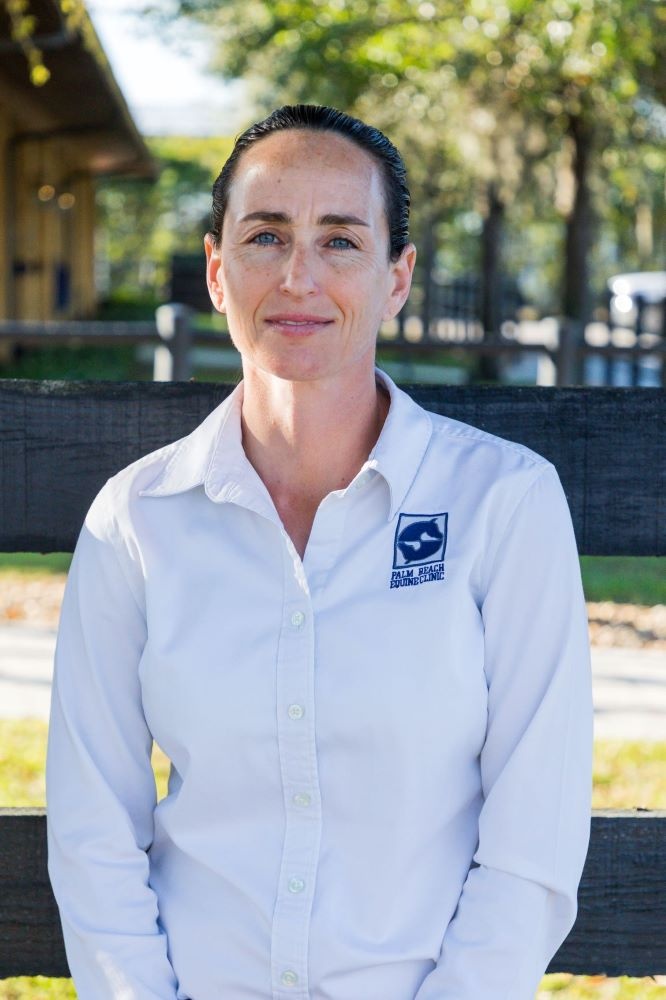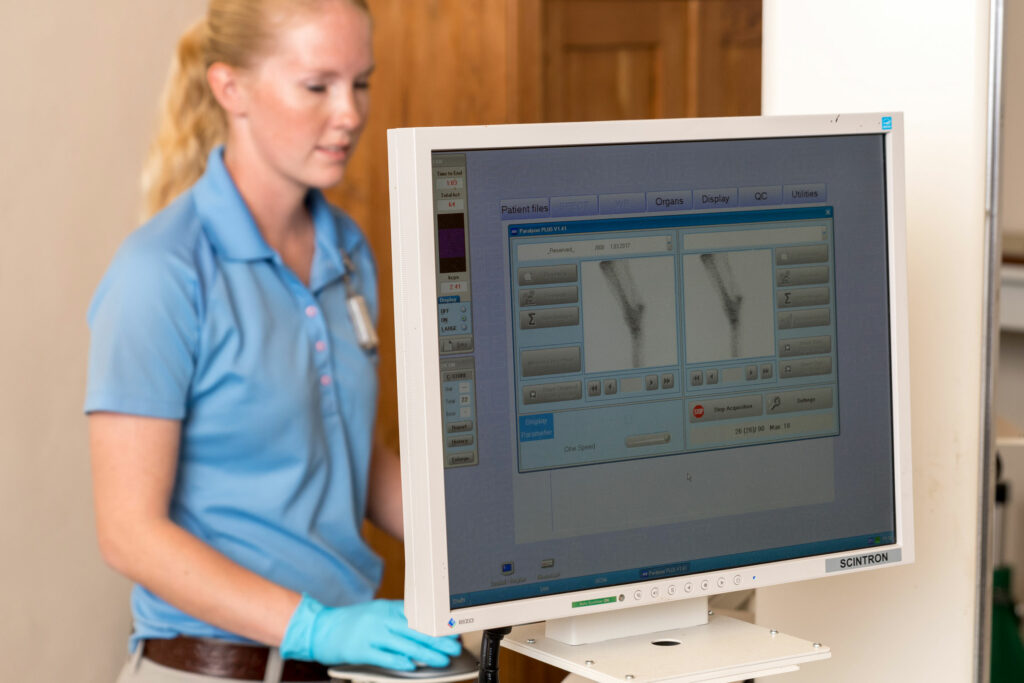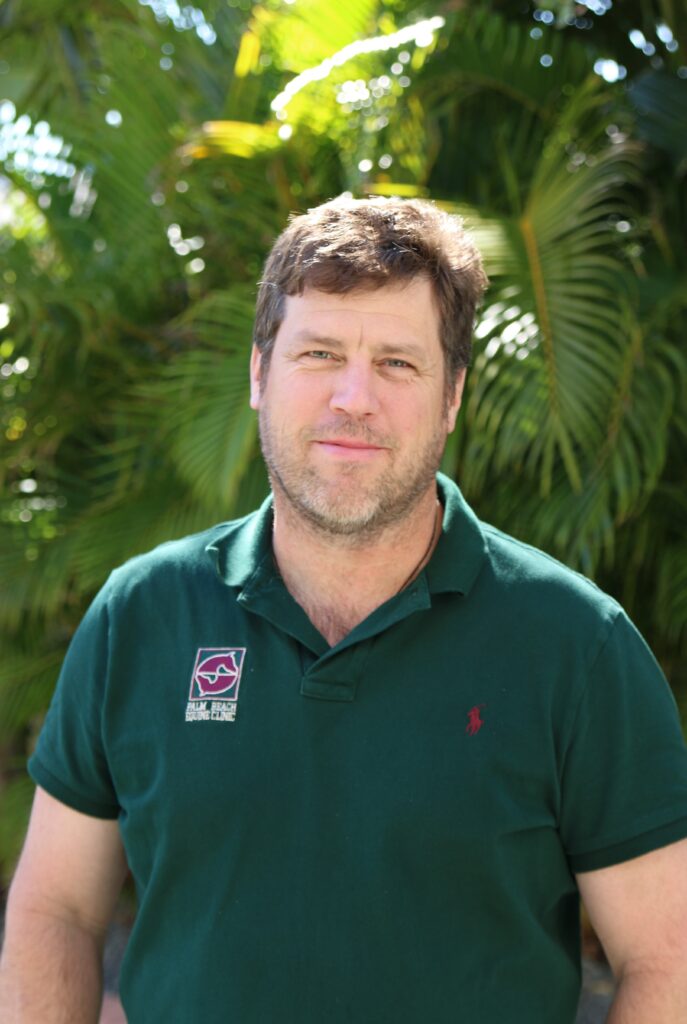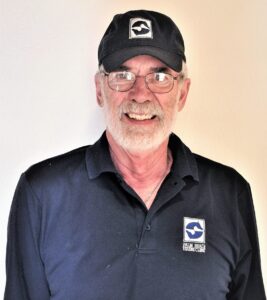Month: September 2016

Hurricane Matthew is making its path toward South Florida, and Palm Beach Equine Clinic is ready and available to help horse owners as the storm is projected to hit the East Coast. Owners are urged to put their hurricane emergency plans into action and take precautions to ensure their horse’s safety before conditions worsen.
Palm Beach Equine Clinic is available for all emergencies 24/7. In case of an emergency, please call the main line at (561) 793-1599. Veterinarians will be on-call to drive to farms to assist or treat horses. PBEC also suggests some important steps for owners to take for their horse’s well being before the storm hits.
Suggestions for safety include:
- Clean up around the barn for debris that may take flight.
- Put a halter on your horse with a tag stating the horse’s name/contact number in case they get loose for the duration of the storm.
- Ensure that horses have access to fresh water.
- If needed, ACE tabs to calm horses can be picked up at the clinic before 12:00 noon tomorrow (Thursday, October 6).
- Place feed/hay in an easy place to get to and off of the ground.
- As an owner, perform a physical examination of your horse the day before to make sure all is healthy and have a comparison for after the storm examination.
Palm Beach Equine Clinic is renowned for its full-service surgical center and intensive care hospital located in the heart of Wellington, Florida. Board certified surgeons, primary care veterinarians, and hospital technicians are scheduled 24 hours a day, 365 days a year to treat, monitor, and care for critical cases. With world-class veterinarians and a full staff of highly trained technicians, both clients and patients of PBEC are in the best hands possible.
In case of an emergency, please call (561) 793-1599 to contact an on-call veterinarian.
Dr. Tyler Davis graduated from the University of Glasgow School of Veterinary Medicine in Glasgow, Scotland, and performed his undergraduate studies at Pennsylvania State University. He then became a member of the Royal College of Veterinary Surgeons. Dr. Davis was born in Linesville, Pennsylvania, and is married to Dr. Janet Greenfield, also a Palm Beach Equine Clinic veterinarian. He enjoys fly-fishing and spending time with his wife and their two children.
How did you get your start with horses?
Entering vet school, my intentions were always to work in large animal medicine. I actually thought I might focus on farm animals, having grown up in a farming area in Pennsylvania. My focus turned to horses alone after starting to work with the university research ponies and spending more time around the equine hospital in my first year of vet school.
When and why did you decide to become a veterinarian?
My interest in veterinary medicine started in middle school. I participated in 4-H, raising animals for our county fair, and had friends who were farmers. Between the two I met many of the local vets and experienced the veterinary profession. When offered to ride along with them on calls, I agreed. While I did investigate other degrees within the science/biology field, I settled on veterinary medicine.
What was the experience of attending veterinary school in another country, and how did that enhance your education?
I was lucky to have the opportunity to attend vet school at the University of Glasgow in Scotland. Attending vet school in a different country afforded me the opportunity to visit places and experience cultures I would have otherwise never had. Also, I believe the experience allowed me to see agricultural practices in a different light, when compared to those practices in the USA. I participated in externships both in the UK and in the USA (knowing I wanted to move back home following graduation) while attending vet school, allowing me to discover different qualities from each.
Why did you choose to focus on dentistry?

I think that I have a strong focus in dentistry but have a number of other skills as well. When starting at PBEC there were only 1-2 other doctors in the practice performing routine dentals floats and the like. I enjoyed the dental work and began steering my focus on the topic through wet labs, continuing education seminars, etc.
What kinds of work are involved with equine dentistry?
My focus in dentistry goes beyond simply floating teeth. While routine dental floats do take up a large portion of my dentistry duties, there are other aspects of the field, which I participate in as well. I also see horses for dental examinations when we may think there is a relationship between the dentition/head and their ability to perform at their desired level. Tooth extractions make up another portion of the dentistry I perform. Occasionally we find infected or fractured teeth on the routine dental exams, but more often these horses are referred to us, either with a diagnosed tooth problem or with a related complaint (not eating, plays with bit during work, throwing head, etc.). We are able to bring these horses to the clinic to be “worked up” (diagnosis through x-ray, oral exam, etc.) and treated (oral tooth extraction, sinus flush, etc.). We have a great facility offering versatility with cases. I work closely with our surgical staff so that if needed, we can put a horse under general anesthesia if more invasive surgical procedures are merited.
What do you love about working at PBEC?
Palm Beach Equine Clinic has both a great facility and great staff. It is a joy working here.
What are some of your other interests?
My other interests include archery, fishing, and woodworking. Typically if I am not working then I am spending time with my beautiful wife and daughters.
What is something interesting that people may not know about you?
Growing up in Pennsylvania, I am actually a pretty good Polka dancer.
The veterinarians at Palm Beach Equine Clinic in Wellington, FL, caution horse owners of recent toxicity cases that have arisen in South Florida suspected by the low growing weed, Creeping Indigo. Although Creeping Indigo is not native to Florida and has been reportedly growing in the state since the 1920s, the plant has recently spread from the past summer’s humid conditions. Most toxic plants are not palatable to horses and therefore do not pose as much risk; however, it appears that horses are eating Creeping Indigo with suspected fatal effects. The only real treatment is to recognize and remove the poisonous plant from all grazing areas.
Palm Beach Equine Clinic’s Dr. Kathleen Timmins explained that veterinarians in South Florida are suspecting Creeping Indigo cases more often and in more places than ever before. Many people are unaware of the problems this toxic plant can cause.

Signs and Symptoms
“Toxicity from Creeping Indigo can present itself through a number of different symptoms, which can make it difficult to recognize and definitively diagnose,” Dr. Timmins noted. “There is no test or treatment, and the damage that it causes can be irreversible. The only true treatment is limiting their exposure to it.”
The most important step to avoid illness is to eradicate the plant from all pastures and grazing areas. Horse owners should walk through their property and review grass areas for the plant. Creeping Indigo is a prostrate plant that is commonly found in high traffic areas of grass, such as parking lots, turf, roadsides, medians, and overgrazed pastures. Flowers arise from the base of the leaves and are pink to salmon in color. It often grows under the grass, and when it is not flowering, it can be difficult to see. It also has a very deep root, so it is not easy to pull up.
Both neurologic and non-neurologic signs are documented, and researchers are uncertain how much Creeping Indigo a horse needs to consume before clinical signs appear.
The most notable signs are neurologic; horses may seem lethargic or have less energy than usual. Head carriage is often low, and there may be rhythmic blinking and jerking eye movements. An abnormal gait may be noticed, characterized by incoordination and weakness in all limbs.
Non-neurologic signs may include high heart and respiratory rates, high temperature, watery discharge from the eyes, discoloration of the cornea or corneal ulceration, or ulceration of the tongue and gums.
“There are so many varied symptoms that it is often not the first diagnosis you would think of,” Dr. Timmins explained. “There are also many other toxic plants, but if horses have access to good quality feed or grazing, they will not usually eat the toxic plants. The best solution is to find the plant, get rid of it, and not have to find out if it has been consumed.”
Treatment
Horses that are quickly removed from the plants may recover completely, but there is no effective treatment, and symptoms may persist. The best way to prevent poisoning is to stop access to paddocks where Creeping Indigo is present and to remove plants by physical means or herbicide application.
Shipping fever is a respiratory disease complex associated with the transport of horses. A common scenario for shipping fever is when a horse is transported from its barn to another state to attend a show. The horse may be healthy and well-hydrated before entering the trailer, but the stress of travel can weaken the immune system.
Another leading factor is tying a horse’s head up while trailering long distances. The mucociliary apparatus of the trachea, which clears dirt and debris from the lower airway, is interrupted due to dehydration, change in temperature, and the inability of the horse to lower its head. The introduction of foreign material into the lower airway can lead to pneumonia, fluid in the pleural cavity (surrounding the lungs), and associated respiratory distress.
Signs and Symptoms to Watch For
Common symptoms noted are hyperventilation, increased rectal temperature, coughing, and nasal discharge after travel. The horse may seem depressed, not willing to work, and not interested in food or water. It is important to call the vet immediately if any of these symptoms are observed after a horse travels. The faster an infection in the lower airway is treated, the quicker and more likely the horse can recover. Shipping fever, if left untreated, can lead to severe pleuropneumonia, which can be life-threatening.
Treatment of Shipping Fever
Initial treatment includes antibiotics, anti-inflammatories, and hydration. If pneumonia progresses without treatment, surgery may be indicated, which can include removal of a rib and placement of chest drains (to drain fluid around the lungs). The vet should be called, and it is crucial to begin treatment at the earliest sign.
There are several preemptive steps that can be implemented to reduce the risk of a horse developing respiratory disease related to travel:
- Split up long trailer rides over several days. Be sure to take breaks and let horses out of the trailer at least every 6-8 hours, if possible.
- Ensure the horse is properly hydrated before travel. Common preventative practice includes administration of oral or IV fluids by a veterinarian prior to travel.
- Discontinue any immunosuppressant drugs 48 hours prior to travel. This includes steroids such as dexamethasone.
- Ship horses in a box stall or similar enclosure so their heads do not have to be tied during travel.
- Ask a veterinarian about immunostimulant drugs that can be given prior to travel.

As more and more international-level sport horse competitions are brought to North America, the import and export of equine athletes overseas has increased significantly. Moreover, with the winter show season in Florida, horses from around the world are about to make a pilgrimage to South Florida.
Either for a purchase or regularly scheduled show-season travel, Dr. Jordan Lewis of Palm Beach Equine Clinic works with Florida state veterinarians to simplify the process of importing and exporting horses to and from international destinations.

Where to Begin
The transport process begins with obtaining travel documents, including an equine passport and health certificate, and organizing travel arrangements with a professional equine shipper. Once travel is organized, checking the horse’s health is suitable for traveling is always the top priority.
“The most important thing to have in order is health records, up-to-date vaccinations, and complete preventative care,” said Dr. Lewis. “Much of the testing upon import and export depends on the outbreaks of different diseases in the import and export countries. The requirements change year to year and even month to month.”
Dr. Lewis is one of the many veterinarians at Palm Beach Equine Clinic who helps owners navigate through the ever-changing import, export, and quarantine regulations.
Requirements Differ Depending on the Specific Import and Export Countries
“Most horses that are coming from Europe to the U.S. to compete in Florida fly into Miami and are placed in a two- or three-day U.S. Department of Agriculture (USDA) quarantine depending on the country they are arriving from,” said Dr. Lewis. “If they are arriving from South America, however, requirements are different and they will spend seven days at USDA in Miami.”
It is there that the most current regulations are upheld and tests are performed to rule out the presence of any threatening diseases.
When importing to the U.S., Dr. Lewis affirms that many tests are required through bloodwork, including equine infectious anaemia (EIA) or coggins; piroplasmosis, which is a tick-borne disease; glanders, a common bacterial disease; and dourine, a parasite-born venereal disease. When traveling from South America, horses are also tested for other parasites, such as screw worms. When exporting from the U.S., testing will vary based on the regulations of the destination country, its current health precautions and common parasites or diseases.
CEM Quarantine
Once the initial quarantine is complete, geldings are released into the general population, while stallions and mares are transitioned to Contagious equine metritis (CEM) quarantine at either a commercial or private quarantine facility.
CEM is a venereal disease in horses caused by bacteria and is only spread during breeding or through infected semen during artificial insemination. CEM quarantine is recommended for all horses entering the U.S. from Europe, but not necessary for those flying in from South America as the disease is not present in those countries.
According to Dr. Lewis, CEM quarantine takes about 15 days for mares and 35 to 40 days for stallions. Taking this into account, she recommends owners plan a month to complete the travel regulations for a mare and two months for a stallion. Horses that are continually showing obviously don’t have this time built into their travel schedules, and that is where waiver tents enter the equation.
Mares and stallions that bypass CEM quarantine are shipped in a sealed trailer to the competition facility where they enter quarantine in a waiver tent to keep them secure from the general horse population while competing.
If horses are admitted into a traditional CEM quarantine, veterinarians like Dr. Lewis perform the appropriate tests and cultures that clear a horse for approved release into a new home or to the event.
“We work very closely with state veterinarians to do all the blood draws and testing for imported horses, as well as stay on top of the requirements of export countries so each horse can easily and safely transition into the equine population,” said Lewis.
While requirements may change often, the ultimate goal of veterinarians like Dr. Lewis and her colleagues remains the same: releasing safe, healthy, and happy horses to travel into the U.S. and all countries around the world.
Horses are competing around the world more than ever. It is important for all horse owners to implement a routine for vaccinations and biosecurity protocols to keep their horses healthy. Many infectious diseases are easily transmitted between horses and spread quickly through a stable or showground if the proper measures are not taken. The veterinarians at Palm Beach Equine Clinic are very experienced with isolation cases and always available to discuss the important steps that should be taken to maintain effective biosecurity protocols. Palm Beach Equine Clinic encourages owners to reach out to their veterinarians at any time for more information or alert doctors of a suspected potential risk.
Preventative Equine Healthcare
The best first line of defense for horse owners is to maintain current equine vaccinations. Equine Influenza and Equine Herpes Virus (EHV-1) are two deadly diseases that are highly contagious and should always be included in a routine vaccination program. In the United States, it is now required for all horses attending a USEF competition to be vaccinated for Equine Influenza and EHV-1 prior to any event. Official documentation of vaccinations being administered within the previous six months must accompany the horse to the competition.
Vaccination does not guarantee absolute protection against any diseases, and biosecurity measures should also be taken as added protection.

Biosecurity is a preventative measure taken to reduce the risk of transmission of infectious diseases by people, animals, equipment, or vehicles. Biosecurity is important at all times, even when an outbreak has not occurred.
The Stress of Travel
Owners that use commercial transport for their horses should confirm that the trailers have been disinfected between each shipment. Trailers should always be well ventilated, and horses should be provided with fresh, clean water at all times. The stress of travel can decrease a horse’s immune system, causing more vulnerability to disease. It is important to monitor your horse’s behavior and health closely before, during, and after traveling.
Preventing the Spread of Diseases
Simple day-to-day practices in health care and hygiene are also very important in reducing the risk of contracting an infectious disease. Washing hands between grooming horses and regularly cleaning grooming supplies can reduce the spread of infection. When attending a horse show or moving horses to a new location, a footbath for all persons entering or leaving the barn at each doorway can be effective in disinfecting shoes to reduce tracking disease into the barn. If horses are showing a depressed attitude, have stopped eating, are running a fever, and/or have a runny nose, contact your veterinarian immediately. Early medical attention for an infectious disease makes a large impact on the recovery of your horse and the equine community’s safety.
The best way to safeguard any horse’s health is to keep the immune system strong with support from a suitable nutrition and exercise program. Vaccinations, a proper deworming program, and biosecurity practices will provide additional protection.
Palm Beach Equine Clinic prides itself as being a consistent leader in sport horse medicine and continues to expand the diagnostic imaging technologies to provide the best services for clients. In addition to state-of-the-art imaging technology available on-site, Palm Beach Equine Clinic is fortunate to work directly with world-renowned Board Certified Radiologist Dr. Sarah Puchalski.
Dr. Sarah Puchalski is a Diplomate of the American College of Veterinary Radiology whose specialty includes the interpretation of diagnostic imaging including Radiographs, MRIs, Nuclear Scintigraphy, and CT scans. Dr. Puchalski’s job requires a high level of specialization to properly review imaging to produce comprehensive written reports for referring veterinarians. In addition to her full-time position with PBEC, Dr. Puchalski reads imaging cases for clinics all over the world. Many veterinarians and owners request a consultation as a second opinion on Pre-Purchase examinations radiographs and ultrasound evaluations.
Pioneering Equine Diagnostic Imaging Modalities
Palm Beach Equine Clinic has always been a pioneer in advances of technology within the equine veterinary industry. Almost 30 years ago, Palm Beach Equine Clinic bought the first ultrasound for equine practice in South Florida. Twenty-five years ago, Palm Beach Equine Clinic installed the first Nuclear Scintigraphy gamma ray camera to perform bone scans. Twenty years ago, Palm Beach Equine Clinic assisted in developing Computed Radiography (CR) for horses. Currently, Palm Beach Equine Clinic has the most advanced surgical and diagnostic imaging equipment available, including a standing MRI unit, MiE gamma ray camera, Digital Radiography, Video Endoscopy, and a bevy of additional diagnostic equipment.
“Palm Beach Equine Clinic has a great case population and great equipment, which is a huge bonus for someone doing what I do,” Dr. Puchalski stated. “The equipment is exceptional, the technical staff is excellent, and the case population of the region is obviously amazing.”
Nuclear Scintigraphy Imaging
Palm Beach Equine Clinic proudly offers an updated Nuclear Scintigraphy lab (bone scan) that houses the MiE Nuclear Scintigraphy gamma ray camera. Nuclear Scintigraphy is typically used to diagnosis injuries or bone remodeling within the skeletal anatomy of the horse. This specialized camera is equipped with sharper contours for precise imaging that results in accurate lameness diagnoses. Advanced software provides the ability to acquire high quality images despite small movements from the patient. This feature reduces the time required to complete a study, which provides quicker results.
Bone scans are also very useful in defining multi-limb lameness origins for the hard to diagnose, long-duration lameness cases. Typically, Nuclear Scintigraphy scans isolate points of injury to be identified further with other diagnostic techniques, such as digital radiology and magnetic resonance imaging (MRI).
The clinic offers an MRI lab containing the innovative Equine Standing MRI manufactured by Hallmarq, which scans the equine distal limb in a standing position requiring only light sedation. MRI is very useful to further define a suspected lameness origin by acquiring more defined images of boney and soft tissue structures.
As one of the top equine medical centers, Palm Beach Equine Clinic has the pleasure of working with many highly specialized, world-class equine professionals. Dr. Peter Heidmann, DVM, DACVIM, is a Diplomate of the American College of Veterinary Internal Medicine, as well as the Owner/Hospital Director of Montana Equine Medical and Surgical Center in Three Forks, MT. In conjunction with a busy schedule of managing Montana’s leading full-service equine referral practice, Dr. Heidmann joined the team at Palm Beach Equine Clinic in Wellington, FL, for the first time this past winter to share his expertise in internal medicine. Dr. Heidmann is scheduled to return again for the 2017 winter season.
Dr. Heidmann grew up in New England and in the year 2000, graduated from Tufts University in Massachusetts with his veterinary degree. He completed his required internship at Arizona Equine, followed by a one-year surgical fellowship at Oregon State University. Beginning in 2002 to 2005, Dr. Heidmann completed a residency for Internal Medicine at the University of California, Davis.
Following his residency in 2005, Dr. Heidmann began his career with a private veterinary practice in Montana. Then an unfortunate turn of events quickly changed his new employment. Dr. Heidmann’s predecessor in Montana passed away in a tragic car crash on the last day of the year, and Dr. Heidmann stepped up to continue to build the practice left to him. Over the last ten years, Dr. Heidmann has developed Montana Equine to include two satellite offices and six senior veterinarians, plus become the leading referral hospital in the state.
As a Board Certified Internal Medicine Specialist, Dr. Heidmann specializes in neonatology, infectious disease, and ultrasound. In addition to his core internal medicine interests, Dr. Heidmann’s strengths also include advanced performance evaluations.
Dr. Heidmann was recruited by Dr. Scott Swerdlin, President of Palm Beach Equine Clinic, during the fall season of 2015. Dr. Heidmann’s wife, Allison, is a professional jumper and enjoys showing at the Winter Equestrian Festival (WEF). When Dr. Swerdlin offered Dr. Heidmann the opportunity to join PBEC and spend the winter in Wellington, he jumped at the opportunity.
“It worked out really well for me, for family reasons as well as professional reasons, to come down and do internal medicine specialty work during the winter in Wellington,” Dr. Heidmann detailed. “It is nice on the professional front, because Montana is the fourth biggest state, but the second lowest in per capita people. There are a lot of horses there, but there is not a lot of specialty horse work during the winter, so it was really nice to be able to work with the caliber of athletes that are at the WEF and come into Palm Beach Equine Clinic.”
“The facilities are really nice, and I am excited about the improvements they are making, because what was already there was incredible,” Dr. Heidmann said, pointing out recent renovations that are currently underway at the clinic. “It is great to have those resources at your fingertips, not just imaging and equipment, but the staff and variety of expertise. In Montana, I have six or seven veterinarians to bounce ideas off of, and all of a sudden at PBEC I had 30 people with different perspectives, and different backgrounds, and training. You get to see different ways of doing things and see how things can be done even more efficiently. I really emphasize the staff as much as the bells, whistles, and equipment.”
“There are not a lot of us Board Certified Internal Medicine veterinarians, because it is perceived as kind of an egghead, academic sub-discipline of equine work,” Dr. Heidmann admitted. “But what we focus on, especially in healthy horses like the athletes at WEF, are performance issues. Two of the most common, classic, performance-limiting issues in athletes, and especially in sport horses, are respiratory problems and muscle problems, which can range from quite subtle to severe.
“Muscles problems can be subtle issues that involve mild tweaking in diet or micronutrients, or they can be more severe issues like a horse that ties up,” Dr. Heidmann detailed, describing myopathy. “Similarly with respiratory problems, it can be a mild issue where the trainer or rider thinks that the horse used to be better or just is not performing up to its potential. It can be subtle respiratory problems like shortness of breath, or loud breathing, or slow recovery after work, or it can be more severe things like respiratory infections.”
Muscle issues and respiratory problems are the two main areas of internal medicine expertise, but the specialty can include many other things, such as liver problems, neurologic problems (brain and spinal cord both), and the care of sick neonates (foals).
“With seasonal breeders, that three-month period in Wellington is a high time for foals being born, and there is really a great deal that we can do with sick babies to end up with a healthy athlete in the end,” Dr. Heidmann noted. “Many people do not even realize what is possible with sick babies. It is possible to recover a top-notch performance horse out of a foal that looks quite dire.”
While Dr. Heidmann specializes in internal medicine, he and all of the veterinarians at Palm Beach Equine Clinic are very knowledgeable and experienced in general medicine practices.
“All of us in equine work are put in positions where we are generalists too, but what I really enjoy about being part of the team at PBEC is being able to focus on my true specialty,” Dr. Heidmann acknowledged. “This is what I spent so much time training to do, and to really be able to go in-depth, not just with the performance horses but non-WEF horses that are in the area as well, is a wonderful experience. We can really offer a level of treatment that is relatively rare in private practices.”
About Palm Beach Equine Clinic
The veterinarians and staff of Palm Equine Clinic are respected throughout the industry for their advanced level of care and steadfast commitment to horses and their owners. With 30 skilled veterinarians on staff, including three board-certified surgeons, internal medicine specialists, and world-renowned board-certified equine radiologists in the country, PBEC is known for leading the industry in new, innovative diagnostics and treatments. Palm Beach Equine Clinic provides experience, knowledge, availability, and the very best care for its clients. Make Palm Beach Equine Clinic a part of your team! To find out more, please visit www.equineclinic.com or call 561-793-1599.
More about Dr. Heidmann
Dr. Heidmann sees referrals and consults on cases from veterinarians throughout Montana and has served as an expert witness in many legal, welfare, and insurance cases. He served as the Internal Medicine Specialist for the 2011 Pan American Games in Guadalajara, Mexico, and participated as one of the founding veterinarians of Montana State University’s Bioregions program to Mongolia in 2014. He is Adjunct Faculty at Washington State University’s School of Veterinary Medicine in Pullman, WA, and Affiliated Faculty at Montana State University, Bozeman.
Regular, routine veterinary care is important to maintaining optimal equine health. Dental care, vaccinations, deworming, and annual physical examinations keep horses healthy and can identify problems early. It is very important that horse owners have a veterinarian who is familiar with their horses and provide routine care.
At Palm Beach Equine Clinic, every veterinarian values the importance of preventative equine medicine, and some have taken a specialty to treatments, including equine dentistry.
Equine Dentistry
Proper dental care is essential to the well-being and peak performance of every horse. Dental maintenance keeps horses working well, performing well, and most importantly, eating well.
It is important to get the horse’s teeth examined and regularly floated at least once a year and sometimes more frequently in older horses. The veterinarians of Palm Beach Equine Clinic are available to visit clients at their farms to perform thorough dental evaluations and “float” the teeth – a term that refers to the veterinarian wearing down the surface of the teeth, usually to remove sharp points or balance out the teeth in the mouth. During the routine examination, the veterinarian will also look for any other dental problems that the horse may have, such as a tooth abscess.
Regular dental care may help to prevent premature tooth loss and promote more complete utilization of feed. A horse with uneven teeth due to wear and tear is going to poorly grind up food creating issues with digestion. This could lead to colic, choke, or other serious complications. Sharp or uneven teeth can also cause pain due to the misfit of a bit on uneven teeth and contribute to poor performance or misbehavior. These problems can quickly be alleviated and prevented with proper care.
With Palm Beach Equine Clinic’s advanced technology, the veterinarians are able to perform more cutting-edge, specialized treatments beyond routine dentistry. Veterinarians are able to perform tooth extractions as needed for horses suffering from a tooth abscess or fracture. With the surgical staff at Palm Beach Equine Clinic, which includes three board-certified surgeons, dental surgeries, sinus surgeries, or similar procedures are easily performed at the clinic.
Preventative Equine Medicine
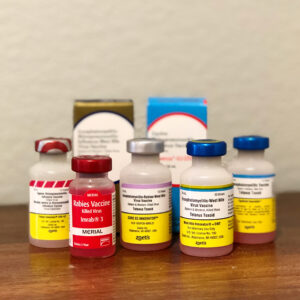
Along with dental care, Palm Beach Equine Clinic offers further preventative equine medicine, including worming protocols for parasite control and routine vaccinations.
Palm Beach Equine Clinic strongly suggests a fecal test to evaluate your horse’s internal parasite count on a routine basis. In Florida, the peak worm season is year-round due to the lack of frost. The effectiveness of different dewormer products can be measured using a simple fecal egg count reduction test, which involves performing a fecal test before and after deworming your horse. Equine tapeworms are also difficult to identify in fecal examinations. Deworming for tapeworms is strongly recommended annually with a product containing Praziquantel.
Establishing an effective deworming program for equine parasites has become an open topic for discussion on which method is most effective. Veterinarians have changed their views on worming in recent years, noting that minimal parasite load within the horse’s hind gut is actually helpful in producing a natural immunity; however, it is crucial to control the parasitic load.
Environmental management is imperative to equine parasite control. Due to the emergence of new resistant parasites, preventative measures in proper barn management should be added to routine rotational treatment with anthelmintic medications to properly control parasite exposure.
Protecting Your Horse from Infectious Diseases
Palm Beach Equine Clinic also stresses the importance of vaccinating horses against infectious diseases, especially with horses that travel. Highly contagious diseases such as Eastern Equine Encephalitis (EEE), the Equine Herpes Virus (EHV-1), and the West Nile Virus are just a few illnesses that often result in equine fatalities and should be taken very seriously.

Routine vaccinations are imperative to protecting horses from disease and are also a requirement to attend many horse shows. Palm Beach Equine Clinic can prepare horses for travel, whether within the U.S. or going to or from Europe.
The best defense for horse owners is to maintain current equine vaccinations to protect their horses. Vaccinating at the proper time of the year is critical, and boosters should be given regularly. Consult with your veterinarian for further guidance on when and how frequently different vaccinations should be administered.
Whether it is a top-level show horse or a backyard pet friend, the veterinarians of Palm Beach Equine Clinic are here to help with all maintenance needs. For questions or more information, please call Palm Beach Equine Clinic at 561-793-1599.
Palm Beach Equine Clinic is proud to have beneficial consulting relationships with many equine medical professionals throughout the country, including Dr. Stephen E. O’Grady, DVM, MRCVS, of Virginia Therapeutic Farriery. Dr. O’Grady provides advanced services in equine podiatry, offering comprehensive diagnosis, treatment, and maintenance for a variety of foot conditions using medical therapy as well as therapeutic shoeing.
Palm Beach Equine Clinic features the services of Dr. O’Grady for consultations year-round. With the experience and expertise of its world-class veterinarians, in addition to Dr. O’Grady’s wealth of knowledge, the Palm Beach Equine Clinic is able to provide the very best in advanced treatments in equine podiatry.
Equine Podiatry Services
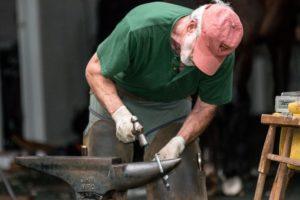
There is no structure on the horse that is as susceptible to injury, disease, or “wear and tear” than the equine foot. Proper, timely hoof care can often make the difference between a sound performance horse and one with chronic lameness. Some of the problems that Dr. O’Grady consults on include:
- Hoof Diseases
- Laminitis
- Severe Infections
- Advanced White Line Disease
- Therapeutic Horseshoeing
- Hoof Wall Defects
- Juvenile Orthopedics
Equine podiatry requires extensive knowledge of hoof anatomy, physiology, biomechanics and diagnostic imaging, as well as the farrier skills necessary to implement specialized shoeing. The combination of being educated as both a veterinarian and a professional farrier allows Dr. O’Grady to treat each foot problem with an understanding of the medical physiology and the mechanics involved. This blending of the two professions allows him to comprehensively diagnose, treat, and design a maintenance plan for a variety of foot conditions using medical therapy as well as therapeutic farriery. Dr. O’Grady also works together with referring veterinarians on difficult cases to discuss and assist with a plan that works for all parties.
Diagnostic Imaging for Equine Podiatry Cases
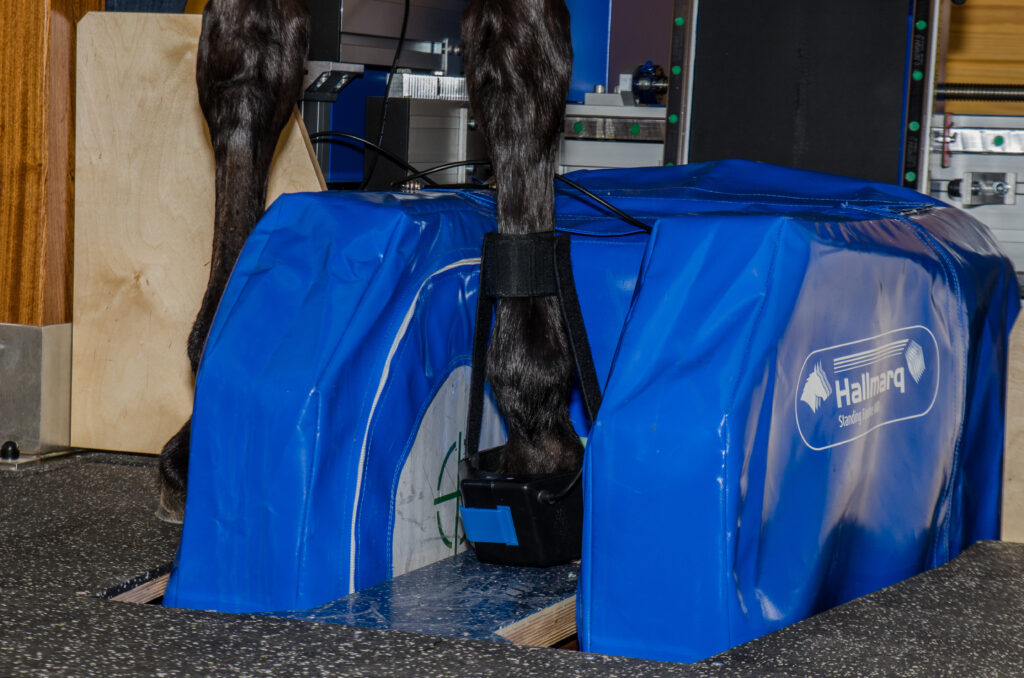
The advanced imaging equipment at Palm Beach Equine Clinic, in combination with Dr. O’Grady’s expertise, allow for comprehensive diagnosis and treatment of all hoof-related conditions. Palm Beach Equine Clinic offers a Hallmarq standing MRI that can provide a detailed diagnosis of any foot issues. Medical therapy, such as surgery and various medications, are often combined with therapeutic farriery for the best possible results. Dr. O’Grady’s methodology centers around using the basic principles of farriery, and when necessary, combining these principles with advanced technology and improved farrier products available on the market.
Equine podiatry consultations can be used for a variety of complicated hoof conditions where the problem is severe, chronic, and non-responsive to the present treatment. Hoof problems can include severe injuries, acute or chronic laminitis, hoof wall defects (non-healing quarter or toe cracks), hoof capsule distortions (club feet, long toe under-run heels), and severe hoof disease (infections, WLD, canker). There are many hoof-related problems that benefit from the advanced technology and farrier techniques available today.

